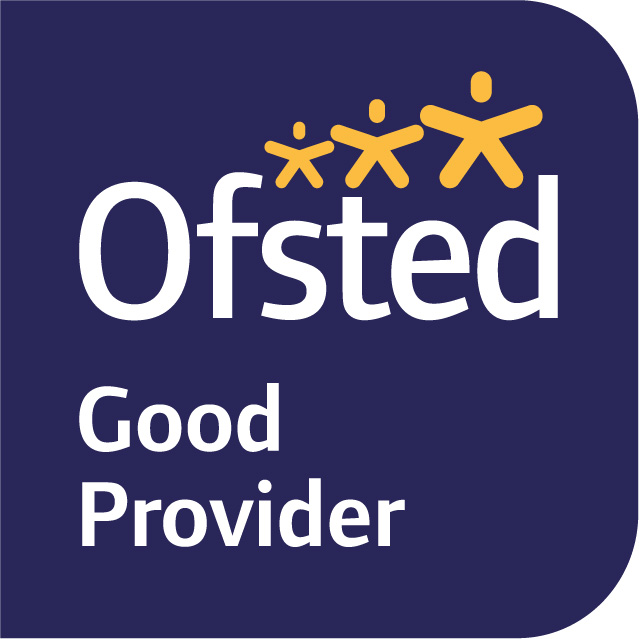This website uses cookies so that we can provide you with the best user experience possible. Cookie information is stored in your browser and performs functions such as recognising you when you return to our website and helping our team to understand which sections of the website you find most interesting and useful.
Access to Higher Education
Access to HE: Health & Social Care
If you’ve been away from education for some time or didn’t quite achieve your College qualifications, an Access to Higher Education programme will give you the confidence and skills to take that next step to start a degree or equivalent University level course.
UOD – Buxton is proud to be part of the University of Derby, which is particularly beneficial for our Access to Higher Education programmes. You can study an Access to Higher Education Diploma at the University of Derby Kedleston Road Campus in Derby. These programmes are between 2 and 3 days a week classroom-based, with additional personal study time required.
If you would like to know what funding, bursaries or loans may be available to you whilst on your access course please click here.
If you are aged 19 or over you may be eligible for an Advanced Learner Loan to pay for your Access programme. You won’t have to pay anything up front and you also won’t need to pay anything back until you are earning a £27,250 salary. Student Finance England will ‘write off’ any outstanding Advanced Learner Loan balances you owe for an Access to HE programme once you complete a higher education course. This means you don’t have to repay it. Please see the following website https://www.gov.uk/advanced-learner-loan or email our Student Money and Rights Adviser: Studentmoneyadviceblc@derby.ac.uk who will be happy to answer any queries you have.
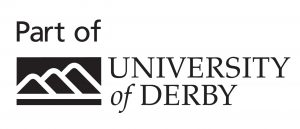
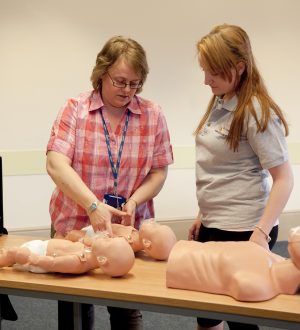
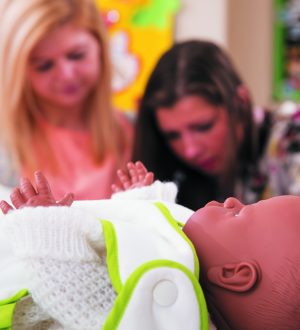


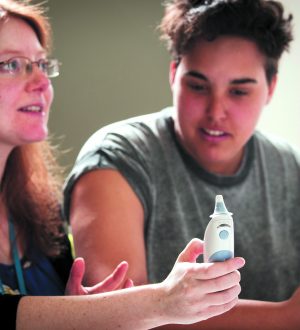
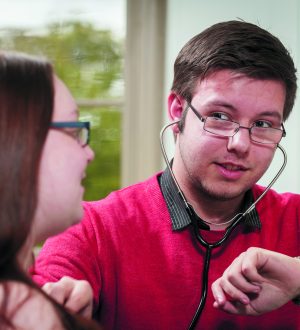
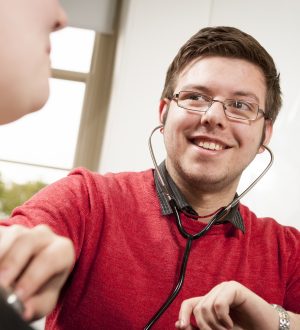
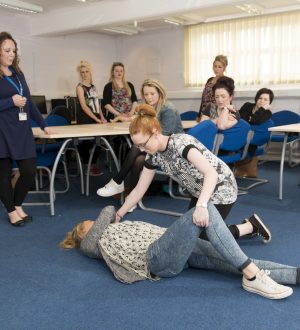
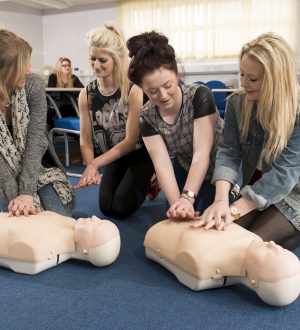
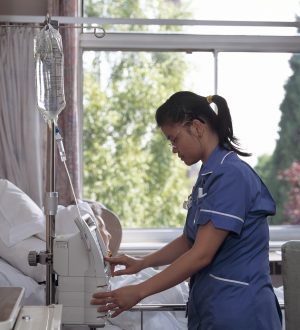
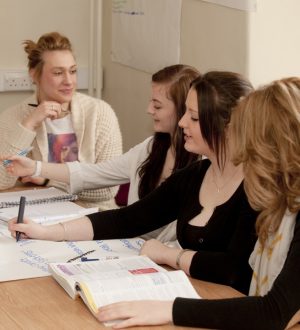




Available courses
Access to HE: Social Science
- Course type: Adults
- Study Type: Full-time
- Study Duration: 36 weeks
- Level: Level 3
- Campus: Derby
- Start date: September
-
Tell me about the course
Diplomas are offered to mature students over the age of nineteen. The intention of the course is that students will achieve a place on an undergraduate degree. This is a one-year Level 3 course taught over thirty-five weeks that prepares students for the rigours of level 4 study and beyond.
Most students do not have relevant Level 3 qualifications such as A-Levels or BTECs, so our Access course (which is regulated by the Quality Assurance Agency) gives students a ‘second chance’. We fully understand that many individuals who are returning to study after a length of time, may be low in academic confidence, but we have an enthusiastic and dedicated team to make sure that our students have the tools to successfully complete the course.
This gives students an excellent foundation in the knowledge and skills that successful applicants will need to pass the Access course. Most Access courses are taught in a college, but students can study with us in a university setting.
Please check our entry requirements to see if you meet the criteria to start with us in September. If you are lacking in level 2 qualifications, we also offer a Level 2 English and Maths course. This allows students to prepare for the Access course by taking English and Maths qualifications alongside other modules to give you an insight to Level 3 study.
You will cover psychology, sociology, educational psychology and study skills modules. Each of these contain content that will be transferable to your degree.
In addition, it will enable you to develop skills that will help you transition into level 4 undergraduate study.
- Psychology
- Educational Psychology
- Sociology
Please note that our modules are subject to change – we review the content of our courses regularly, making changes where necessary to improve your experience and graduate prospects.
-
What qualifications will I get?
Level 3 Access to Higher Education Diploma in Social Work
-
What can I go onto next?
Studying an Education or Teaching degree can allow you to pursue a range of related careers, such as:
- Early Years Teacher
- Primary School Teacher
- Secondary School Teacher
- Further Education Lecturer
- Special Educational Needs Teacher
- English as a Foreign Language Teacher
- Learning Mentor
- Play Therapist
- Youth Worker
- Community Education
It is a popular route for graduates who do not pursue a course with in-built Qualified Teacher Status (QTS) to then complete a QTS or equivalent postgraduate qualification for roles that require this after completing an undergraduate degree.
An Access to Higher Education course will prepare you to pursue a degree related to Education in many fields, from Primary Education (with QTS) to Education Studies.
Our Information and Progression Officer can assist students with applications and the UCAS process. Careers Guidance is also available for students on the course.
-
HOW WILL I LEARN?
A diverse range of teaching and learning activities are used across each subject. Sessions are interactive and work to include student participation and student-led tasks. You will learn differently in each taught session; some sessions utilise group-work, others will focus on independent research and investigation. Scheduled teaching hours are led by your tutor who designs the learning accordingly to the group profile and therefore you will be exposed to a vast range of practises – this also helps demonstrate the techniques/strategies reviewed within the subjects.
Wider enrichment takes place to supplement learning across the academic year. There are opportunities where guest speakers attend to deliver short talks from settings. You will also have access to the University of Derby’s library and on-site facilities for Further Education students.
-
How will I be assessed?
You will be assessed through a range of different assessments that include essay writing, presentations, writing and academic posters. Assessments are explained within each unit and support is offered to scaffold your progress throughout the course. These are all designed to apply the knowledge, skills and behaviours from sessions (and wider reading/experiences) into areas of interest within education.
-
Entry requirements
You will need to be 19 years of age or above on 31 August 2025. You will have achieved Mathematics and English GCSEs at grade A-C/9-4 or Functional Skills Level 2 in English and Maths. However, if you have grade D/3 or Functional Skills Level 2 in one of the subjects, and passed the other, you could study one GCSE alongside the Access course.
For BEd, GCSE English 4/C is required, GCSE Science is recommended, and GCSE Maths could be taken alongside if Functional Skills level 2 or GCSE 3/D previously achieved.
Access to HE Diploma: Medical Science with Chemistry or Physics
- Course type: Adults
- Study Type: Full-time
- Study Duration: 36 weeks
- Level: Entry 2 and 3
- Campus: Derby
- Start date: September
-
TELL ME ABOUT THE COURSE
Diplomas are offered to mature students over the age of nineteen. The intention of the course is that students will achieve a place on an undergraduate degree. This is a one-year Level 3 course taught over thirty-five weeks that prepares students for the rigours of level 4 study and beyond.
Most students do not have relevant Level 3 qualifications such as A-Levels or BTECs, so our Access course (which is regulated by the Quality Assurance Agency) gives students a ‘second chance’. We fully understand that many individuals who are returning to study after a length of time, may be low in academic confidence, but we have an enthusiastic and dedicated team to make sure that our students have the tools to successfully complete the course.
This gives students an excellent foundation in the knowledge and skills that successful applicants will need to pass the Access course. Most Access courses are taught in a college, but students can study with us in a university setting.
Please check our entry requirements to see if you meet the criteria to start with us in September. If you are lacking in level 2 qualifications, we also offer a Level 2 English and Maths course. This allows students to prepare for the Access course by taking English and Maths qualifications alongside other modules to give you an insight to Level 3 study.
You will cover Biology, Physics OR Chemistry, and study skills. Each of these contains content that will be transferable to your degree. The difference between the physics and chemistry groupings depends on what degree you would like to do. Further information about this can be found in the ‘future careers’ section. In addition, this course will enable you to develop skills that will help you transition to Level 4 study.
Human Cell Biology
This unit is designed to give a foundation in the undertraining of eukaryotic cellular biology. Within this unit, we will look at the components of the human cell and investigate their structure and function. The unit will give the learner an understanding of the function of many organelles, such as the nucleus, endoplasmic reticulum, Golgi apparatus, lysosomes, and many more besides. We will also investigate the mechanisms of cellular transport and the role the cell membranes play in this process.
Biochemistry
This unit explores the fundamentals of chemistry, starting with the structure of atoms and ions. From there, students will begin to look at types of bonding found within biology to form molecules such as carbohydrates, proteins, lipids, and nucleic acids. The student will learn to recognise the structure of the biological molecules, relate this structure to their function, and explain the formation and breakdown of polymer molecules within biology. We will also explore the fascinating world of enzymes, with particular attention paid to evaluating the models of enzyme function and explaining the concept of enzyme activation energy.
Genetics
Students will examine the core concept in the central dogma of molecular biology. Within the unit, the learner will explore the importance and function of genetic material including DNA, mRNA, tRNA genes, and chromosomes. We will discuss types of cell division and explore the importance of DNA replication. We will Understand the principles of Mendelian genetics and explain the role of multiple alleles in the inheritance. This unit lays the foundations of genetic understanding which future units will build upon.
Inherited Disease
This unit leads directly on from the genetics unit and explores the medical consequences of errors within our genome. This unit offers the learner some freedom to explore genetic illnesses which are of interest to the student. We will also have exciting guest lectures from senior geneticists who will offer their expertise on the subject.
Infectious Disease
This unit will describe the characteristics of viruses, bacteria, and fungi. Students will explore diseases caused by these microorganisms; with a focus on Covid-19, TB and HIV.
We will describe the key methods by which pathogens may be spread and examine treatment options such as vaccinations, antibiotics, and antiviral drugs. This unit will also offer an insight into the fascinating world of immunology. We will explore both innate and adaptive immunity, consider antibody formation from both natural and artificial exposure to antigens; and evaluate the effects of mass immunisation programmes.
Human Cardiac and Respiratory Systems
The unit will offer students an understanding of the structure and function of the respiratory and cardiac systems. Learners will understand the structure/function of blood and investigate the circulation of blood through blood vessels. The unit will investigate the control mechanisms of the cardiovascular and respiratory systems. This unit will explore the causes, symptoms, and treatments of cardiovascular disease, including the analysis of the statistical relationship between smoking and health.
Skeleton and Muscles
This unit will examine the function of the human skeletal system, including types of bones, types of joints and connective tissues such as tendons, ligaments, and cartilage. Learners will be taught the biochemical differences between skeletal muscle, smooth muscle, and cardiac muscle, including an introduction to sliding filament theory.
Health Promotion
This unit is unlike any other. Rather than a purely biological perspective, this unit will look at ‘health’ from a larger, societal, view. We will draw upon aspects of psychology, sociology, law, economics and even politics to examine the health challenges being faced by British society in 2022. Concepts such as health inequality will be explored, with students being encouraged to research the larger picture of health provision within a society.
Control and Regulation
This unit will cover key concepts involved in homoeostasis. Including osmoregulation, blood glucose regulation and temperature control; We will also explore the medical consequences of the loss of control, including diabetes
Human Reproduction
Within this unit, students will examine the structure and function of the male and female reproductive systems and gamete formation. We will explore the role of Follicle-stimulating hormone (FSH), Luteinizing Hormone (LH), oestrogen and progesterone in regulating the menstrual cycle and describe the events involved in fertilisation. Learners will explore the role of hormones in maintaining pregnancy, initiating birth and lactation; before detaining the events of parturition.
Static, Forces and Newton’s Laws of Motion
This introductory unit investigates balancing forces acting on an object (including gravitational force), objects moving under external forces, and friction.
Waves, Light and Sound
This unit investigates oscillatory motion (such as mechanical and electromagnetic waves and their frequencies), properties of light and sound, and speed of waves.
Electricity
This unit explores electrical charge and current, resistance and capacitance, and calculating electrical energy consumption and cost.
Electromagnetism
This unit investigates electric and magnetic fields, electromagnetic induction and its use in power generation, and transformers.
Nuclear Properties of Material
This unit explores the atomic structure of materials, structure and properties of atoms, radiation and radioactive decay, and nuclear fission/fusion.
Medical Physics
This unit, completed by students as an independent study, explored medical diagnostic techniques (such as X-ray/MRI/ultrasound imaging), the aspects of physics relevant to these techniques, and safety implications. The aspects of physics explored are specifically those from the previous four units.
chemistry
- Fundamentals of Chemistry
- Haloalkanes, Alcohols, Aldehydes and Ketones
- Acids and Bases
- Reaction Kinetics
- Bonding, Crystal Structure and Shapes
study skills
Study skills provides you with some essential skills necessary to complete your Access Diploma and progress onto undergraduate study and is regarded as increasingly important by degree programme admissions tutors. Study skills is comprised of two units: Progression Skills and English for Academic Study. In your study skills lessons, we aim to provide you with a range of new skills or to give you the opportunity to develop existing skills.
Please note that our modules are subject to change – we review the content of our courses regularly, making changes where necessary to improve your experience and graduate prospects.
-
WHAT QUALIFICATIONS WILL I GET?
Level 3 Access to Higher Education Diploma in Health Science
-
WHAT CAN I GO ONTO NEXT?
After completing your access course, you can progress to a degree within the Medical Science discipline that matches your study of either Physics or Chemistry. A degree in the Medical Sciences can lead to varied and exciting career opportunities for graduates within the health service. Some examples include:
- Physics pathway: diagnostic radiography and sonography
- Chemistry pathway: pharmacy and dental therapy
After graduation, you will be able to begin seeking employment in the health service. For further information about your career prospects, you can contact our careers team at careers@derby.ac.uk.
-
HOW WILL I LEARN?
A diverse range of teaching and learning activities are used across each subject. Sessions are interactive and work to include student participation and student-led tasks. You will likely learn differently in each taught session; some sessions utilise group-work, others will focus on independent research and investigation. Scheduled teaching hours are led by your tutor who designs the learning accordingly to the group profile and therefore you will be exposed to a vast range of practises – this also helps demonstrate the techniques/strategies reviewed within the subjects
Wider enrichment takes place to supplement learning across the academic year. There are opportunities where guest speakers attend to deliver short talks from settings. You will also have access to the University of Derby’s library and on-site facilities for Further Education students.
-
HOW WILL I BE ASSESSED?
You will be assessed through a range of different assessments that include essay writing, presentations, writing and academic posters. Assessments are explained within each unit and support is offered to scaffold your progress throughout the course. These are all designed to apply the knowledge, skills and behaviours from sessions (and wider reading/experiences) into areas of interest within education.
-
ENTRY REQUIREMENTS
You will need to be 19 years of age or above on 31 August 2025. You will have achieved Mathematics and English Language GCSEs at grade A-C/9-4.
Access to HE Diploma: Medical Science with Health Psychology
- Course type: Adults
- Study Type: Full-time
- Study Duration: 36 weeks
- Level: Level 3
- Campus: Derby
- Start date: September
-
TELL ME ABOUT THE COURSE
Diplomas are offered to mature students over the age of nineteen. The intention of the course is that students will achieve a place on an undergraduate degree. This is a one-year Level 3 course taught over thirty-five weeks that prepares students for the rigours of level 4 study and beyond.
Most students do not have relevant Level 3 qualifications such as A-Levels or BTECs, so our Access course (which is regulated by the Quality Assurance Agency) gives students a ‘second chance’. We fully understand that many individuals who are returning to study after a length of time, may be low in academic confidence, but we have an enthusiastic and dedicated team to make sure that our students have the tools to successfully complete the course.
This gives students an excellent foundation in the knowledge and skills that successful applicants will need to pass the Access course. Most Access courses are taught in a college, but students can study with us in a university setting.
Please check our entry requirements to see if you meet the criteria to start with us in September. If you are lacking in level 2 qualifications, we also offer a Level 2 English and Maths course. This allows students to prepare for the Access course by taking English and Maths qualifications alongside other modules to give you an insight to Level 3 study.
Human Cell Biology
This unit is designed to give a foundation in the undertraining of eukaryotic cellular biology. Within this unit, we will look at the components of the human cell and investigate their structure and function. The unit will give the learner an understanding of the function of many organelles, such as the nucleus, endoplasmic reticulum, Golgi apparatus, lysosomes, and many more besides. We will also investigate the mechanisms of cellular transport and the role the cell membranes play in this process.
Biochemistry
This unit explores the fundamentals of chemistry, starting with the structure of atoms and ions. From there, students will begin to look at types of bonding found within biology to form molecules such as carbohydrates, proteins, lipids, and nucleic acids. The student will learn to recognise the structure of the biological molecules, relate this structure to their function, and explain the formation and breakdown of polymer molecules within biology. We will also explore the fascinating world of enzymes, with particular attention paid to evaluating the models of enzyme function and explaining the concept of enzyme activation energy.
Genetics
Students will examine the core concept in the central dogma of molecular biology. Within the unit, the learner will explore the importance and function of genetic material including DNA, mRNA, tRNA genes, and chromosomes. We will discuss types of cell division and explore the importance of DNA replication. We will Understand the principles of Mendelian genetics and explain the role of multiple alleles in the inheritance. This unit lays the foundations of genetic understanding which future units will build upon.
Inherited Disease
This unit leads directly on from the genetics unit and explores the medical consequences of errors within our genome. This unit offers the learner some freedom to explore genetic illnesses which are of interest to the student. We will also have exciting guest lectures from senior geneticists who will offer their expertise on the subject.
Infectious Disease
This unit will describe the characteristics of viruses, bacteria, and fungi. Students will explore diseases caused by these microorganisms; with a focus on Covid-19, TB and HIV.
We will describe the key methods by which pathogens may be spread and examine treatment options such as vaccinations, antibiotics, and antiviral drugs. This unit will also offer an insight into the fascinating world of immunology. We will explore both innate and adaptive immunity, consider antibody formation from both natural and artificial exposure to antigens; and evaluate the effects of mass immunisation programmes.
Human Cardiac and Respiratory Systems
The unit will offer students an understanding of the structure and function of the respiratory and cardiac systems. Learners will understand the structure/function of blood and investigate the circulation of blood through blood vessels. The unit will investigate the control mechanisms of the cardiovascular and respiratory systems. This unit will explore the causes, symptoms, and treatments of cardiovascular disease, including the analysis of the statistical relationship between smoking and health.
Skeleton and Muscles
This unit will examine the function of the human skeletal system, including types of bones, types of joints and connective tissues such as tendons, ligaments, and cartilage. Learners will be taught the biochemical differences between skeletal muscle, smooth muscle, and cardiac muscle, including an introduction to sliding filament theory.
Health Promotion
This unit is unlike any other. Rather than a purely biological perspective, this unit will look at ‘health’ from a larger, societal, view. We will draw upon aspects of psychology, sociology, law, economics and even politics to examine the health challenges being faced by British society in 2022. Concepts such as health inequality will be explored, with students being encouraged to research the larger picture of health provision within a society.
Control and Regulation
This unit will cover key concepts involved in homoeostasis. Including osmoregulation, blood glucose regulation and temperature control; We will also explore the medical consequences of the loss of control, including diabetes
Human Reproduction
Within this unit, students will examine the structure and function of the male and female reproductive systems and gamete formation. We will explore the role of Follicle-stimulating hormone (FSH), Luteinizing Hormone (LH), oestrogen and progesterone in regulating the menstrual cycle and describe the events involved in fertilisation. Learners will explore the role of hormones in maintaining pregnancy, initiating birth and lactation; before detaining the events of parturition.
Research Methods
This introductory unit is the groundwork for psychology. You will learn the various methods of how psychologists study human behaviour, such as the traditional laboratory experiment, the discreet observations, and case studies on a range of psychological areas of study.
Treatments and Therapies
You will gain an insight into the different treatments available for various mental health disorders, from Cognitive Behavioural Therapy (CBT) to Psychosurgery. This unit requires you to choose a mental health disorder of your choice, where you discuss the various treatments and therapies available, thus giving an opportunity for you to delve further into mental health disorders that may have previously piqued your interest.
Key Studies in Psychology
Here you delve into six key studies within the history of psychology, all fascinating, and some rather gritty with surprising outcomes. This unit will particularly build on the initial research methods unit by delving into key laboratory experiments, observations, and case studies. This unit heavily encourages debate each week as part of preliminary discussions surrounding ethical considerations that may or may not have been adhered to, as well as how findings of the study relate to the real world.
Health Promotion
This unit gives you the opportunity to create your own health promotion campaign. You will select a mental health or physical disorder/issue that you want to raise awareness about, such as the stigma of mental health disorders, or the promotion of screening programmes in the hopes to prevent future illness.
Within your campaign, you will decide who you want your target audience to be and how you will promote the health issue, such as using leaflets, educational programmes, and even social media. You will not be expected to carry out the health promotion campaign, but you will design it so that it could be implemented.
study skills
Study skills provides you with some essential skills necessary to complete your Access Diploma and progress onto undergraduate study and is regarded as increasingly important by degree programme admissions tutors. Study skills is comprised of two units: Progression Skills and English for Academic Study. In your study skills lessons, we aim to provide you with a range of new skills or to give you the opportunity to develop existing skills.
Please note that our modules are subject to change – we review the content of our courses regularly, making changes where necessary to improve your experience and graduate prospects.
-
WHAT QUALIFICATIONS WILL I GET?
Level 3 Access to Higher Education Diploma in Health Professions
-
WHAT CAN I GO ONTO NEXT?
There are many exciting opportunities in the health service following completion of a degree in the Health Professions, such as a career in nursing/midwifery or occupational therapy. Your degree will give you the relevant placement training and theory knowledge to begin your career after graduation, but if you would like additional careers advice, please contact our careers team at careers@derby.ac.uk.
-
HOW WILL I LEARN?
A diverse range of teaching and learning activities are used across each subject. Sessions are interactive and work to include student participation and student-led tasks. You will likely learn differently in each taught session; some sessions utilise group-work, others will focus on independent research and investigation. Scheduled teaching hours are led by your tutor who designs the learning accordingly to the group profile and therefore you will be exposed to a vast range of practises – this also helps demonstrate the techniques/strategies reviewed within the subjects
Wider enrichment takes place to supplement learning across the academic year. There are opportunities where guest speakers attend to deliver short talks from a range of settings to allow students to gain a greater insight into related fields of practice. You will also have access to the University of Derby’s library and on-site facilities for Further Education students.
You will be assessed through a range of different assessments that include essay writing, presentations, writing and academic posters. Assessments are explained within each unit and support is offered to scaffold your progress throughout the course. These are all designed to apply the knowledge, skills and behaviours from sessions (and wider reading/experiences) into areas of interest within education.
-
HOW WILL I BE ASSESSED?
You will be assessed through a range of different assessments that include essay writing, presentations, writing and academic posters. Assessments are explained within each unit and support is offered to scaffold your progress throughout the course. These are all designed to apply the knowledge, skills and behaviours from sessions (and wider reading/experiences) into areas of interest within education.
-
ENTRY REQUIREMENTS
You will need to be 19 years of age or above on 31 August 2025. You will have achieved Mathematics and English GCSEs at grade A-C/9-4 or Functional Skills Level 2 in English and Maths. However, if you have grade D/3 or Functional Skills Level 2 in one of the subjects, and passed the other, you could study one GCSE alongside the Access course.




